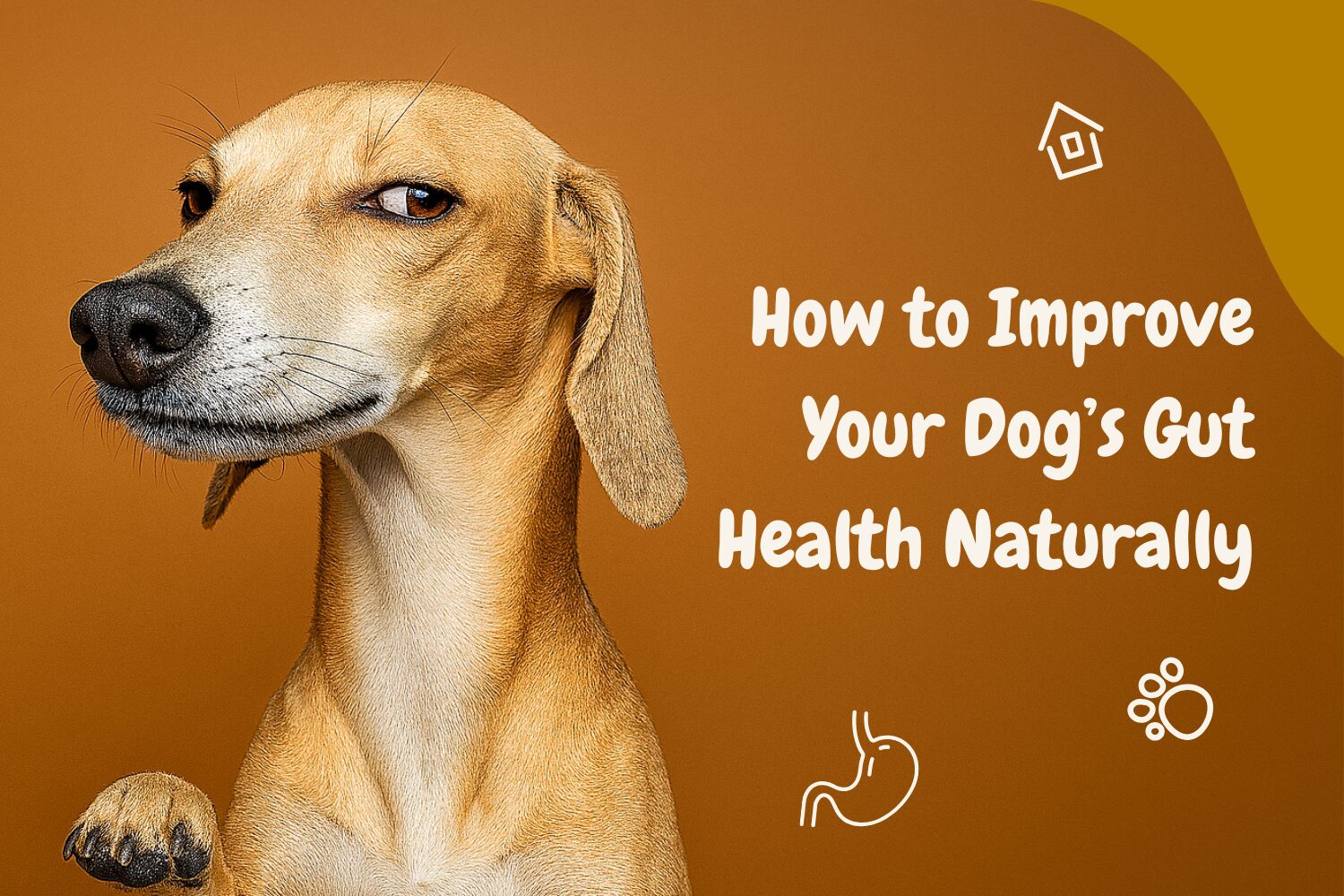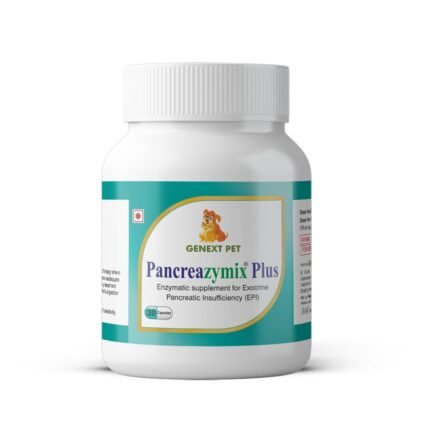A healthy gut isn’t just about digestion — it’s the foundation of your dog’s overall health. From immune strength to mood stability, your dog’s gut plays a massive role in how they feel, behave, and heal. If your dog often experiences gas, loose stools, or unexplained sluggishness, their gut might be out of balance.
Here’s a simple, vet-informed guide to improve your dog’s gut health naturally through food, routine, and smart daily habits.
Why Gut Health Matters in Dogs
A dog’s gut is home to trillions of beneficial bacteria that help:
- Digest food and absorb nutrients
- Produce key vitamins (like B12 and K)
- Support a strong immune system
- Keep inflammation in check
- Regulate mood and behavior
When this balance is disturbed — whether due to poor diet, antibiotics, or stress — your dog can quickly experience a range of health issues.
Signs Your Dog Might Have Poor Gut Health
It’s not always obvious, but these are some early warning signs:
- Gas, bloating, or frequent diarrhea
- Foul-smelling or loose stool
- Bad breath (not just from food!)
- Lack of appetite or inconsistent eating
- Dull coat, itchy skin, or hair loss
- Lethargy, anxiety, or restlessness
If you notice these symptoms regularly, it’s time to address their digestive wellness.
Natural Ways to Improve Your Dog’s Gut Health
The good news? Gut balance can often be restored naturally with small, consistent changes:
1. Switch to a Gut-Friendly Diet
Feed high-quality dog food with:
- Easily digestible proteins (chicken, fish, turkey)
- No artificial preservatives or fillers
- Moderate fat content
- No wheat, soy, or corn if they’re sensitive
Gradual transitions help avoid stomach upset.
Also Read: Probiotics vs Prebiotics for Pets
2. Add Natural Probiotics to Their Diet
Probiotics are beneficial bacteria that help restore balance in the gut. You can add:
- Plain, unsweetened yogurt (small amounts)
- Probiotic-rich supplements
See this guide: Probiotics for Dogs with Diarrhea: What to Look For →
3. Prebiotics: Fuel for Good Bacteria
Include gentle, natural prebiotic sources like:
- Pumpkin
- Chicory root
- Bananas
- Apples (no seeds)
- Sweet potatoes
These act as food for the probiotics to thrive.
4. Fiber-Rich Additions
Fiber helps regulate stools and prevent bloating. You can include:
- Canned pumpkin (not pie mix!)
- Chia seeds (soaked)
- Cooked oats (in moderation)
Best Foods & Ingredients to Support Digestion
Consider rotating or adding these gut-friendly ingredients:
- Bone broth: Soothes the digestive tract and hydrates
- Pumpkin: Regulates bowel movements
- Plain yogurt: Delivers live cultures for gut support
- Cooked veggies: Carrots, green beans, zucchini
- Slippery elm (vet-advised): For irritated stomach linings
Avoid table scraps, processed meats, dairy (except yogurt), and excessive fat or raw bones unless guided by a vet.
Also Read: Best Nutrients for Healthy Growth in Puppies & Kittens
Are Supplements Necessary for Gut Support?
Supplements aren’t always essential, but they can make a real difference, especially in dogs with:
- Recurring diarrhea or bloating
- Weak immune systems
- Sensitive stomachs
- A history of antibiotics
If natural food-based approaches aren’t enough, your vet may suggest a probiotic digestive blend like Neobiotic DFM.
Looking for gentle multivitamin options for sensitive dogs?
Check this guide, Best Multivitamins for Dogs with Sensitive Stomachs →
Lifestyle Tips for a Healthier Dog Gut
- Stick to a consistent feeding routine
Irregular mealtimes stress the gut. - Keep your dog hydrated
Dehydration slows digestion and nutrient absorption. - Avoid unnecessary antibiotics or meds
These can wipe out good bacteria — always follow vet guidance. - Ensure daily walks & playtime
Movement boosts metabolism and digestive rhythm. - Manage stress
Dogs are sensitive to change – travel, loud noise, or new environments can cause GI flare-ups.
FAQ
What’s the best food for dog gut health?
Look for high-protein, grain-free options with added prebiotics or probiotics.
How do I know if my dog needs a probiotic?
If your dog has frequent gas, loose stools, or takes antibiotics often, a probiotic may help.
Can yogurt replace a probiotic supplement?
Yogurt can support gut health, but may not be strong enough alone for therapeutic effects.
How long does it take to see gut improvements?
Usually 2–4 weeks of consistent dietary changes, sometimes longer for chronic issues.
Can gut issues affect my dog’s mood?
Yes – the gut-brain axis in dogs means poor gut health can lead to anxiety or behavior shifts.
About Author
Dr. Kevin Modi
Dr. Kevin Modi is a trusted voice in the Indian pet care space, with years of hands-on experience in pet wellness, gut health, and natural supplements. At GenextPet, he guides product formulation and ensures content accuracy, drawing from real-world insights and the latest research. His goal? To simplify pet health for every dog and cat parent.



